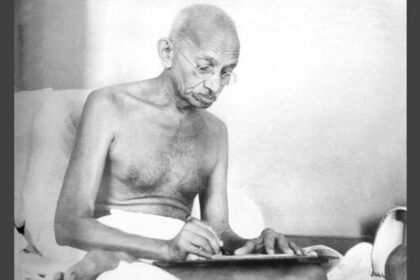Anil Yadav’s collection exposes systemic apathy towards the marginalized in contemporary India.
The collection titled Courtesans Don’t Read Newspapers, translated from Hindi by Vaibhav Sharma, consists of five stories and a novella that delve into the stark realities faced by the impoverished. It portrays a landscape marked by monstrous apathy and societal neglect, highlighting the struggles of those on the margins. The novella, which shares the book’s title, presents a farcical narrative set in Varanasi, where the issue of women in prostitution has become a contentious topic. The plot revolves around a disgraced Deputy Inspector General (DIG) who attempts to impose moral order in Manduadih, only to encounter opposition from the very sex-workers he aims to control and from two journalists, C Antaratma and Prakash. This clash reveals the broader societal challenges, such as rampant urbanization, bureaucratic corruption, and the enduring stigma that the sex-workers endure.
Yadav’s storytelling is both engaging and provocative, skillfully blending humor with serious themes. The opening story captivates readers with its vivid depiction of life in a city where everything seems turned upside down. Following the novella, the collection features five distinct stories, each exploring various social issues with depth and nuance. One standout tale, “Lord Almighty, Grant Us Riots!”, illustrates the dire conditions faced by poor Muslim weavers in Mominpur, Varanasi. The narrative highlights the community’s struggles during the monsoon, where unchecked waste from the city floods their homes, leading to disease and despair. The story conveys a grim reality where a riot emerges as the only means to attract the attention of an indifferent administration.
Another significant story, “The Folk Singer’s Swan Song,” follows Janam, a Birha singer who grapples with his identity and the complexities of caste dynamics. His journey from ridicule to political prominence reflects the evolving cultural landscape, marked by the encroachment of Bollywood influences. Yadav’s use of lyrical language and Sharma’s adept translation amplify the narrative’s emotional resonance, allowing readers to connect deeply with Janam’s experiences.
The collection also features lighter moments, such as in “The Magic of Certain Old Clothes,” where the clash between Nalin and Neelima over their differing views on thriftiness reveals deeper societal values. In contrast, “The Road to the Other World” provides a more introspective examination of childhood memories and loss, showcasing Yadav’s versatility as a writer. This story, in particular, offers a gentle respite from the harsher themes prevalent in the other narratives.
In the concluding story, “RJ Saheb’s Radio,” the protagonist reflects on his life through the lens of nostalgia and old Hindi songs, confronting existential questions that arise from personal and professional achievements. This somber reflection brings the collection to a poignant close, encapsulating the overarching themes of memory and identity.
Anil Yadav’s work, reminiscent of fellow writer Chandan Pandey, stands out for its bold exploration of both urban and rural experiences. Courtesans Don’t Read Newspapers is a compelling collection that combines a writer’s skill with a translator’s artistry, making it a significant contribution to contemporary Hindi literature. Its narratives are not only memorable but also demand attention, making this collection a must-read for those interested in the complexities of modern Indian society.








